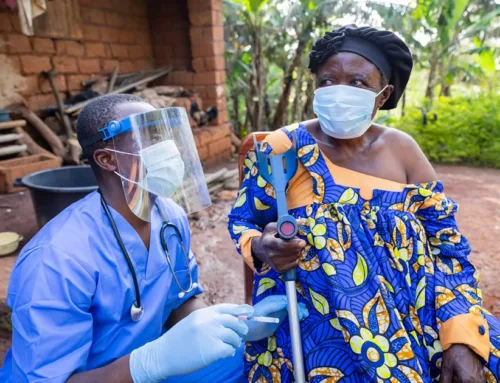In today’s rapidly evolving world, the need for resilient healthcare infrastructure has never been more critical. A strong and robust healthcare system is essential to address public health challenges effectively. The COVID-19 pandemic further highlighted the importance of a well-prepared and flexible healthcare infrastructure, capable of withstanding unforeseen crises and maintaining public health and well-being.
Health systems are the backbone of any country’s public health framework. They encompass a wide range of elements, including infrastructure, healthcare professionals, medical supplies, technology, and governance. A well-functioning health system ensures access to quality healthcare services, promotes health and well-being, and safeguards populations during health emergencies.
Resilient healthcare infrastructure is a crucial component of a strong health system. It refers to the ability of healthcare facilities and systems to withstand and respond effectively to shocks and stressors, such as pandemics, natural disasters, and disease outbreaks. Resilient healthcare infrastructure relies on four key pillars: preparedness, response, recovery, and adaptation.
Infrastructure development plays a vital role in strengthening health systems and building resilient healthcare infrastructure. It encompasses physical assets, such as hospitals, clinics, laboratories, and medical equipment, as well as information systems, supply chains, and transportation networks. Investing in infrastructure development ensures that the healthcare system can accommodate growing population needs and evolving public health challenges.
At NIFDAR PBO we recognize the significance of infrastructure development in healthcare and we’ve taken significant strides in this area. We collaborate with stakeholders, including community leaders, policymakers, and fellow non-profits, to identify infrastructure gaps and implement sustainable solutions. By leveraging our expertise and resources, NIFDAR PBO strives to create resilient communities and thriving individuals.
Under our Health Programmes umbrella, NIFDAR PBO focuses on four key areas: HIV/AIDS, Tuberculosis (TB), Non-communicable Diseases (NCDs), and Health Systems Strengthening. These programmes address some of the most pressing public health challenges faced by communities, aiming to improve access to healthcare services, enhance disease prevention and control, and promote overall well-being.
NIFDAR PBO’s commitment to strengthening health systems is evident through our innovative approaches and collaborations. The organization leverages digital health technologies to enhance healthcare delivery, improve data collection and analysis, and empower individuals to take control of their health. By bridging the digital divide, NIFDAR PBO ensures equitable access to healthcare information and services, even in remote and underserved areas.
In addition to our Health Programmes, we actively engage with donors, philanthropists, volunteers, academics, and researchers to drive meaningful change and make a lasting impact on public health.
In conclusion, building resilient healthcare infrastructure is crucial for addressing public health challenges effectively. At NIFDAR PBO, we are dedicated to strengthening health systems through infrastructure development and innovative approaches. With a focus on HIV/AIDS, TB, NCDs, and Health Systems Strengthening, we are working towards creating resilient communities and championing excellence in healthcare, digital health, climate change, and education. To learn more about our impactful work, visit ‘Our Work’ page.



